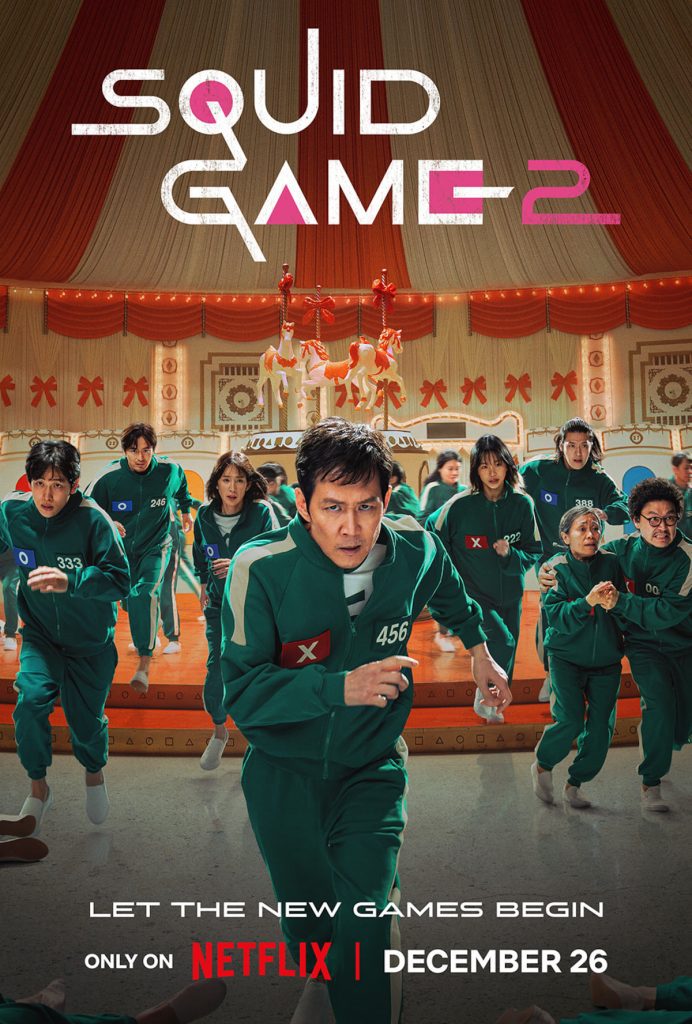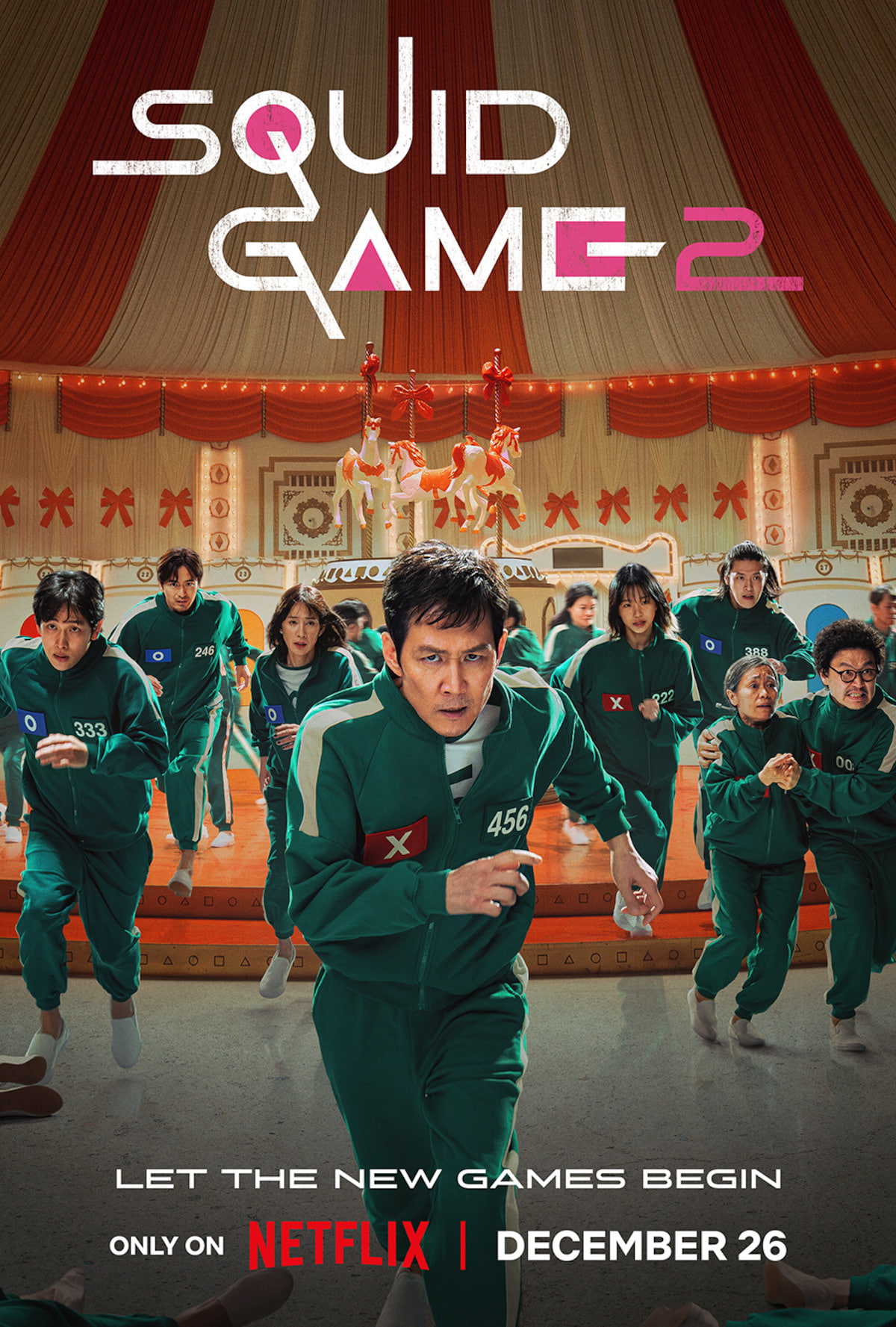
Andre de Bonk’s Review of Squid Game Season 2
When I first ventured into Season 2 of Squid Game, I expected the same level of suspenseful storytelling and moral complexity that made the first season a global phenomenon. What I got was something that both delivered on my expectations and also felt deeply, uncomfortably relevant. In my view, the season soared in its opening four episodes before gradually easing into familiar territory. Still, even those less intense moments had enough grit to keep me intrigued.
Naive Hero vs. Brutal Reality
What struck me immediately was how the main protagonist this time around appears almost childlike—clinging to grand ideals and moral high ground, often at the expense of his own well-being. It’s a risky choice by the showrunners; we’re given a hero whose worldview is so pure, it’s almost out of place in the violently competitive environment. Yet, I suspect that’s part of the point.
It’s as though the creators are weaving a layer of satire or commentary on modern society: yes, you can try to uphold virtue, but you might just end up being left behind—or even dead—if you don’t adapt. And ironically, they seem to be doing most of their preaching through everyone else besides the protagonist. The others operate on a more pragmatic, sometimes merciless level, suggesting perhaps their mindset is what’s truly needed to survive.
Questionable Game Twists & Character Removals
I have to admit, I wasn’t thrilled with how certain plot points were handled—particularly the abrupt exit of the courier. Removing characters early on can certainly be a powerful narrative move, but in this instance, it felt hasty and deprived us of some potentially rich story arcs.
Moreover, one of the main games in Season 2 left me scratching my head: the protagonist’s constant reliance on luck rather than wit or strategy. It almost felt like the creators wanted to spotlight a “moral victory” where pure-hearted risk-taking could pay off. But what if it hadn’t? What if his luck ran out? Would the show have revealed the thinness of his ideals—or was that tension the point all along?
Society’s Unspoken Brutality
One facet of Season 2 that resonated with me is the implication that the real world might be even more cutthroat than these literal death matches. The show seems to shout, “We’re living in a system that’s inherently rigged, though it’s not as visibly violent as Squid Game.” It’s a raw, biting message, and I can’t help but think the creators are hinting that if people had the option to join a life-or-death game in exchange for a shot at freedom, riches, or redemption, a disturbing number would say “yes.”
Yet there’s a certain restraint to the storytelling. They don’t overtly condemn society; instead, they raise questions, forcing us to do the heavy lifting. For me, that’s part of what makes Squid Game so compelling: it’s an unsettling mirror pointed right back at us.
Later Episodes: A Dip in Novelty
I’d be remiss not to note that the final three episodes, while still engaging, lacked the shock factor that defined early Season 2—and, of course, the entirety of Season 1. The show is no longer brand-new, so many of its tricks feel a tad familiar. Still, it’s a testament to the writing that I remained invested in seeing how they’d tie up loose ends and set the stage for yet another return to the arena.
Specifically, I’m curious whether the protagonist—so dependent on cosmic luck and unwavering optimism—will undergo a more nuanced transformation. Part of me hopes the show will push him to confront moral gray areas rather than rely on good fortune. But I also appreciate that his naive heroism sets him apart from the rest.
Looking Ahead
When I close my eyes and wonder about a potential Season 3, I can’t help but feel both excitement and trepidation. Will the showrunners push the boundaries of how far people can be driven in the name of survival, or will they peel back the layers on the architects of Squid Game, exploring their motives in greater depth? The series has a ton of loose threads to pull on—intriguing conspiracies, morally ambiguous participants, and that unspoken question of whether real-life society might be creeping uncomfortably close to the show’s gruesome competitions.
As Andre de Bonk, I’ll say this: Season 2 hit home in a powerful way, especially in its early episodes. The moral provocations, the haunting idea that our world isn’t so different from the games, and the hero’s unwavering faith in his own luck all collided into a package that kept me thinking—and talking—long after each episode ended. While the novelty wore a bit thin near the end, the core of Squid Game remains as pointed and relevant as ever: in a system fueled by desperation, greed, and hidden cruelty, who among us would refuse a chance—even a slim one—to change our fate?
Ultimately, I look forward to seeing how the creators continue to evolve this conversation, pulling at the delicate threads that bind personal morality, societal pressures, and humanity’s need to survive. If Season 2 has proven anything, it’s that there’s still room for Squid Game to provoke and surprise, no matter how many times we’ve stepped into its grim, adrenaline-fueled world.


